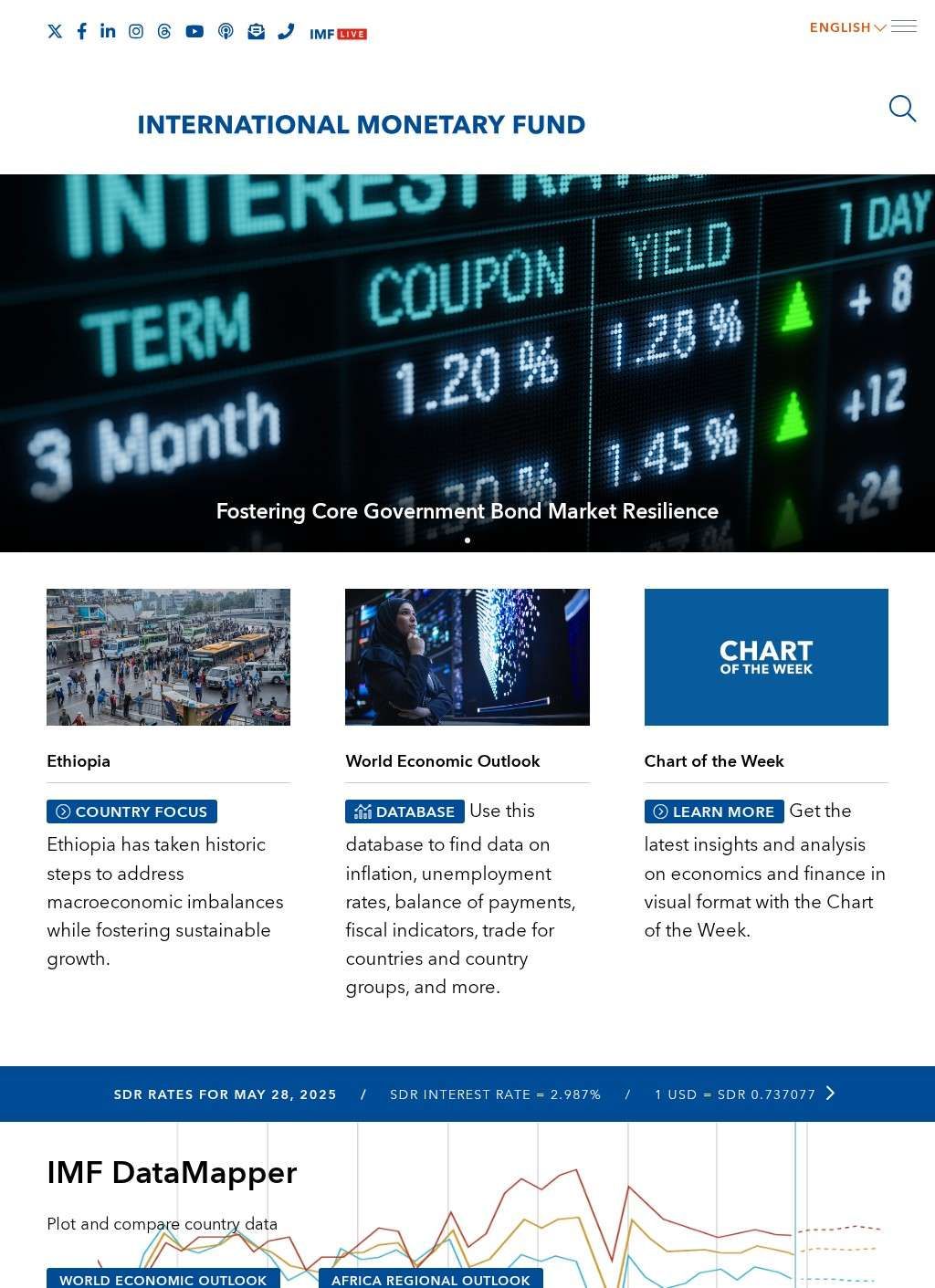The International Monetary Fund brings a unique global perspective to cryptocurrency investment, analyzing how digital assets affect monetary systems, financial stability, and cross-border capital flows. As an organization serving 190 member countries, the IMF observes cryptocurrency markets from a macroeconomic vantage point that individual investors rarely see. This broad view reveals systemic risks and opportunities that shape the investment landscape, from the impact of stablecoins on emerging market currencies to the challenges crypto poses for monetary policy effectiveness. For investors seeking to understand cryptocurrency within the global financial context, the IMF's research provides invaluable insights.
The Fund's approach to cryptocurrency reflects its core mandate of promoting international monetary cooperation and financial stability. Unlike national regulators focused on protecting domestic investors, the IMF examines how cryptocurrency adoption affects entire economies and the interconnected global financial system. Research shows that in some emerging markets, cryptocurrency adoption has reached levels where it could undermine traditional monetary policy tools. This macroeconomic perspective helps investors understand why certain countries embrace or restrict cryptocurrency, affecting investment opportunities and risks across different jurisdictions.
IMF research on cryptocurrency investment risks goes beyond individual asset volatility to examine systemic vulnerabilities. Studies analyze how widespread crypto adoption could create new channels for financial contagion, where problems in cryptocurrency markets spill over into traditional banking systems. The Fund examines how stablecoins might facilitate capital flight from countries with weak currencies, potentially destabilizing entire economies. This systemic analysis helps sophisticated investors understand correlation risks and why cryptocurrency markets might behave differently during global financial stress.
The organization's policy frameworks for cryptocurrency provide a roadmap for how different countries might regulate digital assets. The IMF's "Elements of Effective Policies for Crypto Assets" outlines nine key principles that countries should follow, from implementing robust regulatory frameworks to ensuring macroeconomic stability. For investors, these frameworks signal how regulatory environments might evolve, which jurisdictions might become more crypto-friendly, and where restrictions could tighten. Understanding these policy directions helps investors make informed decisions about geographic diversification and regulatory risk.
Collaboration between the IMF and other international bodies creates comprehensive resources for understanding cryptocurrency's global impact. Joint work with the Financial Stability Board produces synthesis papers examining how crypto affects financial stability. Partnership with the World Bank through initiatives like the Bali Fintech Agenda provides frameworks for harnessing financial technology benefits while managing risks. These collaborative efforts give investors access to consensus views from the world's leading economic institutions, providing authoritative guidance on cryptocurrency's role in the global economy.
The IMF's Financial Stability Reports regularly assess cryptocurrency market developments and their implications for global finance. These reports track the growing interconnections between crypto and traditional financial institutions, measuring exposure levels and identifying vulnerability points. Analysis covers how crypto market volatility might transmit to banking sectors, how DeFi protocols could circumvent traditional financial regulations, and whether central bank digital currencies might displace private cryptocurrencies. This systematic monitoring helps investors anticipate potential market disruptions and regulatory responses.
Educational resources from the IMF translate complex economic analysis into accessible insights for various audiences. Finance & Development magazine publishes articles explaining cryptocurrency's economic implications in clear, non-technical language. The IMF's online learning platform offers courses on digital money and fintech, helping investors understand the theoretical foundations underlying cryptocurrency markets. These educational initiatives bridge the gap between high-level policy discussions and practical investment considerations.
The Fund's research on central bank digital currencies (CBDCs) provides crucial context for cryptocurrency investors. As more countries explore or launch digital versions of their national currencies, the competitive landscape for private cryptocurrencies evolves. IMF analysis examines how CBDCs might provide the benefits of digital money while maintaining monetary sovereignty, potentially reducing demand for private cryptocurrencies. Understanding these dynamics helps investors assess long-term viability of different cryptocurrency use cases and adjust portfolios accordingly.
Country-specific analysis from the IMF reveals how cryptocurrency affects different economies uniquely. In countries with high inflation or currency controls, crypto serves as a hedge against local currency depreciation. In advanced economies, it functions more as a speculative investment or technological experiment. The Fund's Article IV consultations with member countries increasingly address cryptocurrency issues, providing investors with authoritative assessments of how digital assets interact with specific national contexts. This granular analysis helps investors understand market dynamics in different regions.
The IMF's work on international regulatory coordination addresses a fundamental challenge for cryptocurrency investors - regulatory arbitrage. As digital assets move seamlessly across borders, inconsistent regulations create opportunities and risks. The Fund promotes policy coordination to prevent regulatory races to the bottom while avoiding stifling innovation. For investors, this coordination effort signals movement toward more predictable and stable regulatory environments, reducing uncertainty that has long plagued cryptocurrency markets.
Technical assistance provided by the IMF to member countries shapes cryptocurrency investment environments worldwide. When countries seek help developing cryptocurrency regulations or assessing financial stability risks, IMF experts provide guidance based on global best practices. This technical assistance influences how quickly and effectively countries can integrate cryptocurrency into their financial systems. Investors benefit from understanding where IMF assistance might accelerate cryptocurrency adoption or where it might lead to more restrictive frameworks.
Through its comprehensive approach to cryptocurrency analysis, the IMF provides investors with essential context often missing from market-focused resources. The organization's research reveals how macroeconomic forces, international policy coordination, and systemic risks shape cryptocurrency investment outcomes. While the IMF doesn't offer investment advice, its analysis helps investors understand the broader forces affecting digital asset markets. As cryptocurrency becomes increasingly integrated with global finance, the IMF's perspective becomes ever more valuable for investors seeking to navigate this complex landscape successfully.
